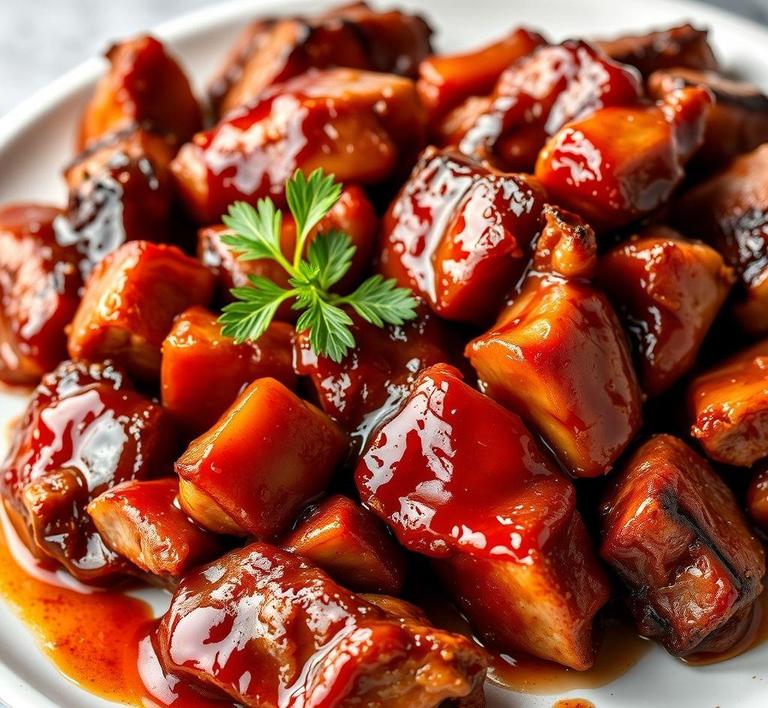If you’ve ever found yourself with leftover marinated meat and wondered whether it’s safe to refreeze it, you’re not alone! Refreezing marinated meat can be a bit tricky, but with the right knowledge, it can be done safely. The key lies in how you handle the meat, both before and after marinating. In this guide, we’ll walk you through the best practices for refreezing marinated meat to maintain its flavor and texture, and avoid any food safety risks. So, if you’ve got that extra batch of marinated steak, chicken, or pork hanging around, don’t toss it just yet-let’s dive into how to refreeze it properly!
Can You Refreeze Marinated Meat?

The simple answer is yes, you can refreeze marinated meat, but with certain caveats and considerations. Whether it’s chicken, beef, pork, or lamb, freezing marinated meat is generally safe as long as you follow the right procedures. However, the quality of the meat and the marinade itself may be impacted by the freezing and thawing process.
To understand why, let’s first explore the freezing process in more detail. When you marinate meat, you’re essentially allowing the marinade to penetrate the protein fibers. This adds flavor and can also tenderize the meat. However, when you freeze marinated meat, the water content in both the meat and the marinade can form ice crystals. The larger the ice crystals, the more damage they can do to the texture of the meat and its ability to absorb the marinade when you cook it. So, while the meat itself can still be refrozen safely, the marinated experience may not be the same as the first time it was frozen.
Another important factor to consider is food safety. If you’ve thawed marinated meat and left it at room temperature for too long (more than 2 hours), bacteria could grow, making it unsafe to refreeze. Refreezing under such conditions could potentially cause foodborne illnesses. So, it’s crucial to keep the meat at safe temperatures throughout the process to maintain both its safety and its quality.
How To Refreeze Marinated Meat?
Refreezing marinated meat is relatively simple, but it requires some careful steps to ensure that you don’t sacrifice too much of the meat’s quality or, more importantly, its safety.
-
Thaw Meat Properly First:
If the marinated meat is frozen already, the first step is to thaw it. The safest way to thaw marinated meat is in the refrigerator. This ensures that the temperature remains safe and constant. Avoid thawing the meat at room temperature, as this allows bacteria to grow quickly. It may take several hours or overnight, depending on the size of the cut of meat.
-
Inspect the Meat for Quality:
Before refreezing, inspect the meat carefully. Does it look fresh, or is there any discoloration or an off-putting odor? If it smells sour or strange, it may have been exposed to unsafe temperatures for too long and should not be refrozen. Always trust your senses.
-
Freeze Within 24 Hours of Thawing:
Once the meat is thawed, try to refreeze it within 24 hours. The longer it stays thawed, the higher the risk of bacteria growth. Ideally, you should plan to use the meat within a short time frame, as marinated meat has a shorter shelf life than fresh cuts.
-
Package Properly:
When refreezing, it’s important to store the meat in airtight packaging, such as freezer-safe plastic bags or vacuum-sealed containers. This prevents freezer burn and helps preserve the marinade’s flavors. Try to remove as much air as possible before sealing, to minimize the formation of ice crystals.
-
Label and Date:
Always label your packages with the date of freezing. While frozen marinated meat can last for months, the sooner it’s cooked after refreezing, the better it will taste. Typically, refrozen marinated meat should be used within 1 to 3 months to ensure the best flavor and texture.
Quality Impact
Refreezing marinated meat may not yield the same high-quality results as the first freeze, and there are a few reasons for this:
-
Texture Changes:
One of the biggest issues when refreezing marinated meat is the potential impact on texture. When meat is frozen and then thawed, ice crystals form within its cells. These crystals can puncture the cell walls, leading to a loss of moisture when the meat is later cooked. Marinated meat is even more vulnerable, as the marinade helps to break down proteins and tenderize the meat. Refreezing may result in a mushier or drier texture when cooked, as the water that was absorbed by the meat and marinade may not be fully reabsorbed after freezing.
-
Flavor Alteration:
The freezing and thawing process can also alter the flavor profile of marinated meat. Freezing causes some of the marinade’s flavors to dissipate or become diluted. In particular, herbs, spices, and acidic ingredients (like lemon or vinegar) may lose their sharpness and become less pronounced. This could result in a less vibrant flavor when the meat is finally cooked. Additionally, if the meat was exposed to air or improperly sealed during freezing, freezer burn could cause flavor changes, making the meat taste less fresh.
-
Risk of Over-Marinating:
When you freeze marinated meat and thaw it later, you risk over-marinating the meat. The marinade continues to break down the protein fibers, and when the meat is cooked, it might end up too soft or even mushy in texture. This is especially the case with very acidic marinades or those with high salt content, which can change the protein structure of the meat over time.
-
Bacterial Contamination Risk:
Although freezing halts bacterial growth, it doesn’t kill bacteria. If you thaw the meat improperly or leave it out for too long, bacteria can multiply rapidly and spoil the meat. This can not only degrade the quality of the meat but also pose significant health risks. That’s why keeping marinated meat at safe temperatures is vital before refreezing.
While it is possible to refreeze marinated meat, it’s essential to be mindful of both safety and quality. The process of freezing, thawing, and refreezing can have a considerable impact on the texture, flavor, and overall integrity of the meat. To minimize these effects, it is crucial to follow proper thawing and freezing techniques, ensuring the meat stays at safe temperatures and is tightly sealed in quality packaging.
Ultimately, refreezing marinated meat is acceptable for convenience, but it is best done when you’re aware that the flavor and texture may not be as perfect as they were before freezing. For the best results, consume refrozen marinated meat within a reasonable time frame and always consider the impact of freezing on your meal’s final quality. If you’re hoping for the most delicious and tender results, fresh marinated meat is still the way to go.
Is It Safe To Refreeze Marinated Meat?
When it comes to marinated meat, the question of whether it’s safe to refreeze it often comes up, especially for those who like to buy in bulk or prepare meals ahead of time. Marinating meat involves soaking it in a flavorful liquid mixture, typically consisting of oil, acid (like vinegar or citrus), and seasonings. While marinating adds tenderness and flavor, it also influences how the meat should be handled once thawed.
Refreezing marinated meat is possible, but it carries risks. Whether or not it’s safe depends on a few key factors, including how the meat was thawed and stored, as well as how long it has been out of the freezer.
- Thawing Process: If the marinated meat was initially frozen and then thawed safely in the refrigerator (not at room temperature), it’s generally safe to refreeze. The thawing process should ideally take place at a controlled temperature (below 40°F or 4°C), which helps to slow bacterial growth. However, if the meat was thawed in warm or hot conditions, such as being left out on the counter for an extended period, refreezing becomes riskier due to bacterial proliferation.
- Marinade Considerations: Some marinades contain acidic components, like lemon juice or vinegar, which can alter the texture of the meat. Freezing and thawing the meat multiple times can cause it to become mushy or lose its desired texture, which is especially noticeable with certain cuts like chicken breasts or fish. The marinade itself, while flavorful, can also degrade over time and cause the meat to become overly salty or sour once refrozen.
- Risk of Foodborne Illness: Each time meat is frozen and thawed, the process increases the chances for harmful bacteria to multiply. If marinated meat has been left at temperatures above 40°F for too long, refreezing it could make it unsafe to eat. Bacteria like Salmonella, E. coli, and Listeria can thrive in these environments, so ensuring the meat has been properly thawed and not left in the “danger zone” for extended periods is crucial.
Signs That Marinated Meat Should Not Be Refrozen
There are several indicators to help determine whether marinated meat should not be refrozen. These signs typically point to the presence of harmful bacteria, spoilage, or an undesirable change in quality.
- Off or Sour Smell: A sour, rancid, or unusually pungent odor is one of the most obvious signs that the marinated meat should not be refrozen. This indicates that the meat has started to spoil or that bacteria have proliferated. When in doubt, always trust your nose. If the meat doesn’t smell fresh or has an off-putting odor, it’s safest to discard it.
- Change in Texture: If the meat has become slimy or excessively soft to the touch, it could be a sign that it has been thawed and refrozen multiple times, or it wasn’t handled correctly in the first place. Marinated meat that’s been left at room temperature for too long or improperly thawed may lose its natural texture, becoming mushy or excessively wet. This change is not only an aesthetic issue but also a food safety concern.
- Discoloration: Marinated meat that has changed to an abnormal color, such as grayish or greenish tints, should never be refrozen. Fresh meat typically ranges from pink to red, and while marinated meat can take on a slightly darker hue due to the marinade’s ingredients, dramatic color changes suggest that spoilage may have occurred.
- Excessive Ice Crystals: If the marinated meat has been refrozen multiple times, you might notice a large buildup of ice crystals on the surface. These ice crystals indicate that the meat has been thawed and refrozen, which can affect the texture and overall quality. If these ice crystals are visible, it’s usually a sign that the meat has been subjected to temperature fluctuations, which could have compromised its safety.
Common Refreezing Mistakes
Refreezing marinated meat might seem simple, but it’s easy to make mistakes that can affect both safety and quality. Here are some of the most common missteps:
- Thawing at Room Temperature: One of the most dangerous things you can do when preparing marinated meat for refreezing is allowing it to thaw at room temperature. Meat should never be thawed on the countertop or in hot water. This creates a breeding ground for bacteria, particularly if the meat is left in the “danger zone” (between 40°F and 140°F) for more than two hours. Always thaw marinated meat in the refrigerator or in cold water, if necessary.
- Not Allowing Meat to Cool Properly: After cooking or defrosting marinated meat, it’s crucial to cool it properly before refreezing. If it is refrozen while still warm, the condensation can create excess moisture, which compromises both the texture and the safety of the meat. Always ensure meat is fully cooled to room temperature before refreezing.
- Refreezing in a Bulk Portion: While it’s tempting to refreeze a large batch of marinated meat all at once, doing so makes it harder to manage cooking portions later. Instead, try to divide marinated meat into smaller, meal-sized portions before freezing. This reduces the risk of thawing and refreezing multiple times, which leads to quality loss.
- Improper Packaging: To avoid freezer burn and preserve the flavor of marinated meat, it’s important to package it properly. Using airtight freezer bags or vacuum-sealed bags helps to protect the meat from exposure to air. Freezer burn can dry out the surface and negatively affect the texture, making the refrozen meat less appetizing.
Tips And Tricks
To maximize the safety, quality, and convenience of refreezing marinated meat, consider these tips:
- Label and Date: Always label and date your marinated meat before freezing it. This helps you keep track of how long it’s been in the freezer, reducing the risk of keeping it past its prime. Ideally, meat should be refrozen within a few days of thawing to ensure the best quality.
- Use a Freezer Thermometer: Investing in a thermometer for your freezer can help you ensure that it stays at a constant 0°F or lower. Temperature fluctuations can cause the meat to thaw and refreeze unintentionally, which negatively impacts both safety and texture.
- Pre-Freeze in Single Portions: If you’re not sure how much marinated meat you’ll use at once, it’s a good idea to pre-freeze portions individually. You can freeze the marinated meat on a baking sheet in a single layer first, and once frozen, transfer it to airtight containers or bags. This way, you can easily thaw only what you need.
- Refreeze Within a Short Time: Ideally, marinated meat should be refrozen within one to two days of thawing. The sooner it’s refrozen after thawing, the better the quality will be when you go to cook it again. If you can’t refreeze the meat within this time frame, it may be best to cook it and then freeze the cooked product instead.
- Consider Cooking Before Refreezing: Another approach is to cook the marinated meat before refreezing it. Cooking kills any bacteria that may have developed during the thawing process, reducing the food safety risks associated with refreezing raw meat. The cooked product can then be safely refrozen for later use.
Conclusion
Refreezing marinated meat is generally safe as long as it is done under the right conditions, but it requires careful attention to both food safety and quality. The key to safe refreezing lies in proper thawing, monitoring the meat for signs of spoilage, and understanding the impact marinating has on texture and flavor. While it’s not recommended to make a habit of thawing and refreezing meat multiple times, following these guidelines will allow you to safely enjoy your marinated meat without compromising taste or safety. Ultimately, with a few precautions and mindful handling, refreezing can be a convenient and safe method to reduce food waste and preserve your favorite meals.


